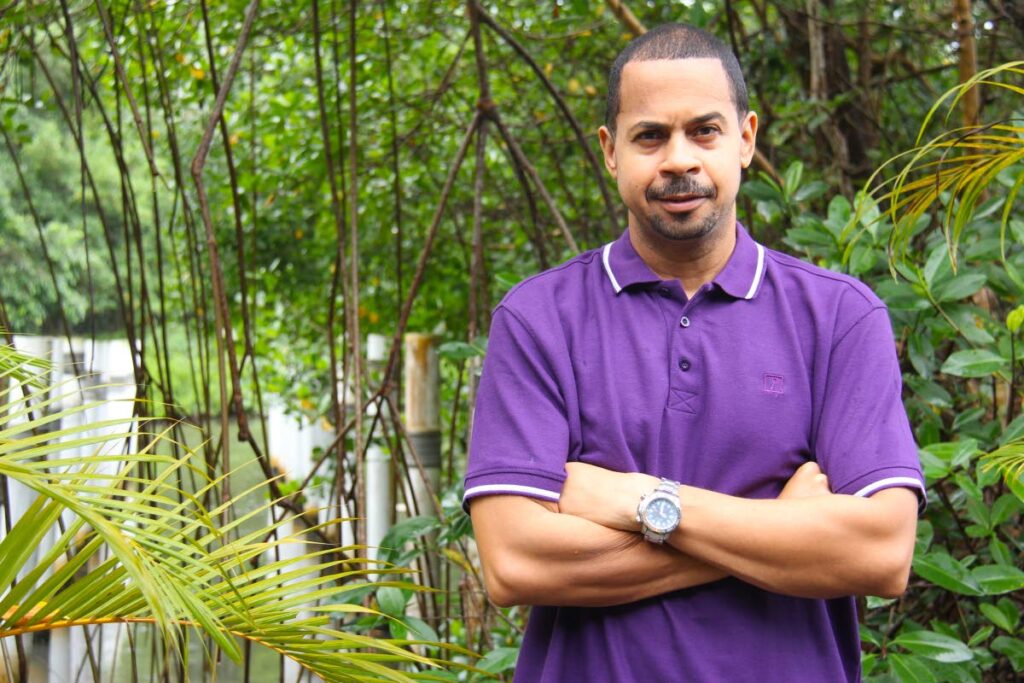Trinidad through rose-coloured glasses

PAOLO KERNAHAN
YOU COULD bad-talk Trinidad all you want once you are inside. When you bad-talk Trinidad to outsiders, that is where the starboy get kill, as my mother used to say.
Trinis have a hair-trigger offence mechanism for truths spoken beyond our borders. We're mostly OK with unflattering accounts of crime, poverty, corruption and hopelessness in a local setting, though.
That's why Miss World TT Jeanine Brandt's remarks raised the hackles of so many. She exposed the underbelly of TT society. In her account of poverty, Brandt stoned a jep nest filled with shouters, doubters and I-know-all abouters. Social-media battalions in home wear mobilised in quick order, energetically objecting to Brandt's use of the word "thousands" to characterise the extent of the problem.
Flanking the beauty contestant on all sides, defenders of the realm opined frothily that they didn't know where she gets her statistics from. Never mind online objectors had no stats of their own to buttress their clattering disbelief.
Even educated opinion suggested Brandt was way off base because governments have spent billions on poverty alleviation (whatever that is). We are (were?) one of the richest in the region. In a field of infinite choice, that was the weakest of arguments on offer.
Perhaps some actual research on poverty might shed some light where it's been mostly heat so far.
According to the UNDP Human Development Report 2020, the most recent survey data (2011) suggests 0.6 per cent of the population, or 9,000 people, are multidimensionally poor, while an additional 3.7 per cent, or 51,000, people are classified as vulnerable to multidimensional poverty.
When most people think of poverty, it's broadly defined as a lack of money. Multidimensional poverty, though, describes the affliction of multiple disadvantages – poor health or malnutrition, a lack of clean water or electricity, poor quality of work or little schooling. Such assorted privations line up with Jeanine Brandt's account.
That's not all the UNDP report reveals, though.
Between 1990 and 2019, TT's human development index or HDI increased by 19.2 per cent. Life expectancy went up, along with years of schooling and income. These are all excellent outcomes.
However, what the human development index masks is inequality of income distribution – which is at the heart of our troubles. While there have been improvements in living standards, we're not nearly as advanced as we should be, considering the wealth that passed through this country.
Our oil industry is more than a hundred years old. By stark contrast, Norway's oil industry only began in earnest in the 1970s. It has one of the highest standards of living on the planet. Before the advent of its oil industry, the Norweigan economy was almost primitive. While there is the legacy of colonialism in TT to contend with, Norway's approach to investing in the future with oil revenues shows the path we've mostly avoided.
Much of the poverty so many vehemently deny can be traced right to the door of failed politics. Politicians have over the years invested oil revenues through the malign mechanism of politics itself because they, somewhat perversely, see the country's future and future of the party as the same. The party is the people, and the government is the party.
This warped ideology, combined with pathological corruptibility, perpetuates the unequal distribution of resources we see today. Those in denial are wilfully ignorant of pockets of poverty that dot this country. They confuse "access" to healthcare and education with quality and serviceability. There is a school place for every child even if that child's parents can't afford books, shoes and passage to get to school. There may be a bed in a hospital, but no doctor to see you; no functioning MRI machine to get scanned. It's easier to cite access and turn your back to inconvenient realities.
The billions spent on poverty alleviation are investments in the dependency syndrome that keeps the beholden forever so.
Poverty eradication would create educated, self-sufficient citizens less prone to voting for the continued cycle of dependency and abuse. That's the TT that post-colonial politics built.
Yes, this country has gorged on tremendous wealth. We are better off than many of our Caribbean neighbours, for now anyway. But as Chris Cornell famously sang, money can't give what the truth takes away.
To quote indefatigable community and social activist Avonelle Hector-Joseph, Trinis have to deny the poverty Brandt described because "they would have to do something about it, or harden their conscience."

Comments
"Trinidad through rose-coloured glasses"